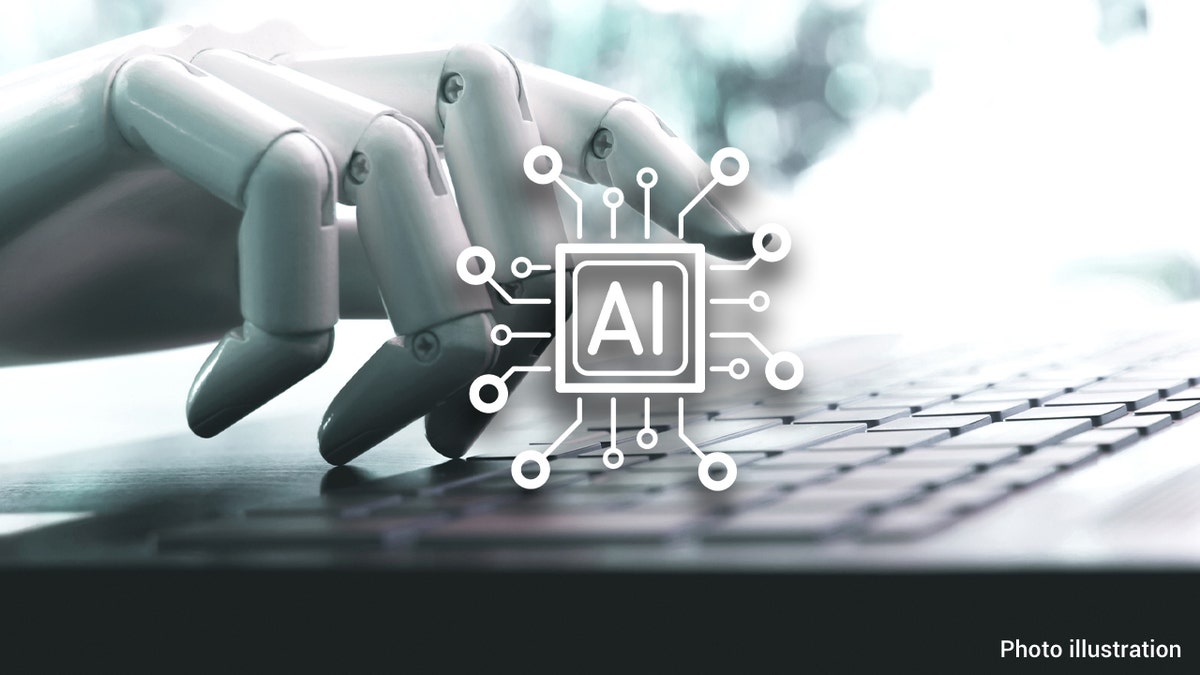Lawmakers, tech experts sound alarm over artificial intelligence's potential dangers
Kara Frederick, tech director at the Heritage Foundation, discusses the need for regulations on artificial intelligence as lawmakers and tech titans discuss the potential risks.
Since the November 2022 launch of OpenAI’s ChatGPT (Generative Pre-trained Transformers), the issue of AI technologies-related job displacement is receiving renewed economic impact scrutiny.
For example, in March 2023, technology firm OpenAI released a report that found at least 80% of the U.S. labor force could have at least 10% of their work-related tasks affected by the introduction of GPT, while another 19% of employees may see at least 50% of these work-related tasks impacted. While GPT influence impacts all wage levels, the higher-income jobs potentially face the greatest exposure, concludes OpenAI.
Also in March 2023, researchers at investment banker Goldman Sachs, after collecting data on occupationally-oriented tasks in Europe and the U.S., found that roughly two-thirds of current occupations are exposed to varying degrees of generative AI automation (such as found in ChatGPT), and that AI could substitute for nearly one-fourth of current work performed.

Pew Research found that "jobs with a high level of exposure to AI tend to be in higher-paying fields where a college education and analytical skills can be a plus." (iStock)
In July 2023, the McKinsey Global Institute issued a report estimating that without generative AI, automation could take over tasks accounting for 21.5% of the hours worked in the U,S. economy by 2030; but with generative AI, that share increased to 29.5%.
Also in July 2023, the Organization for Economic Co-operation and Development reported that "when considering all automation technologies including AI, 27% of jobs are in occupations at high-risk of automation." Later in July 2023, Pew Research reported that "in 2022, 19% of American workers were in jobs that are the most exposed to AI, in which the most important activities may be either replaced or assisted by AI."
Furthermore, Pew Research found that "jobs with a high level of exposure to AI tend to be in higher-paying fields where a college education and analytical skills can be a plus." These jobs are generally classified as "professional, scientific and technical services; finance, insurance, and real estate; and public administration."
How do American workers view AI’s impact on their workplace?
In an August 2023 poll of 1,000 Americans, The Center for Growth and Opportunity (CGO) at Utah State University asked Americans for their feelings on AI job displacement generally and then with their job specifically. "Generally," 79% of Americans are worried about AI displacement – either "somewhat" or "very worried."
However, when CGO asked whether they are worried about their own job being displaced by AI, 62% of Americans are "not worried at all," and only 15% "very worried."
AI JOBS WITH MIND-BLOWING PAYCHECKS OF $375K A YEAR
These seemingly contradictory opinion poll results, however, track closely with the results of a 2020 poll conducted by The Center for Growth and Opportunity on the future of work, where three-of-four Americans believed that their job would exist in 30 years.
Is AI a "general purpose technology"? Definitely, as it is a group of technologies that will have widespread effects across industries and sectors, resulting in significant economic, social and public policy impacts.
Will it likely have disproportionate effects on certain occupations? Yes, the above-mentioned studies forecast both negative and positive impacts. But it is important to differentiate whether AI (GPT) will "eliminate" - or deeply reduce - the demand for certain occupational skill sets (which it may), or will it "complement" many occupations, resulting in occupational productivity increases and organizational cost savings.
"Generative AI’s ability to 1) generate new content that is indistinguishable from human-created output and 2) break down communication barriers between humans and machines reflects a major advancement with potentially large macroeconomic effects," reports Goldman Sachs.
HOW AI TOOLS COULD TURN INTO JOB-KILLING MACHINES
According to Goldman Sachs’ researchers, the combination of significant labor cost savings, new job creation (due to the emergence of new occupations following technological innovations), and higher productivity for non-displaced workers raises the possibility of generative AI potentially raising annual U.S. labor productivity growth by just under 1.5 percentage points over a 10-year period following widespread adoption.
Moreover, the McKinsey Global Institute views "generative AI enhancing the way STEM, creative, and business and legal professionals work rather than eliminating a significant number of jobs outright."
Five years ago, billionaire entrepreneur Mark Cuban warned America of the impending "Job Terminator" known as AI: "Literally, who you work for, how you work, the type of work you do is going to be completely different than your parents within the next 10 to 15 years."
CLICK HERE FOR MORE FOX NEWS OPINION
Yet, the so-called "rapid" adoption of artificial narrow intelligence (ANI) by industry has gradually evolved over the last decade. While there are legitimate reasons to be concerned about the effects of a potentially "disruptive" technology like AI-GPT in the longer term, the projections for near-term widespread "displacement" of jobs or occupations will occur are less likely for those employees embracing AI-GPT tools as a complement to their existing skill sets - thus evolving their job scope and opportunities by creating new value-added skill sets.
Americans have successfully embraced similar technological challenges in the past, and they will confidently adapt to this latest occupational challenge.












































